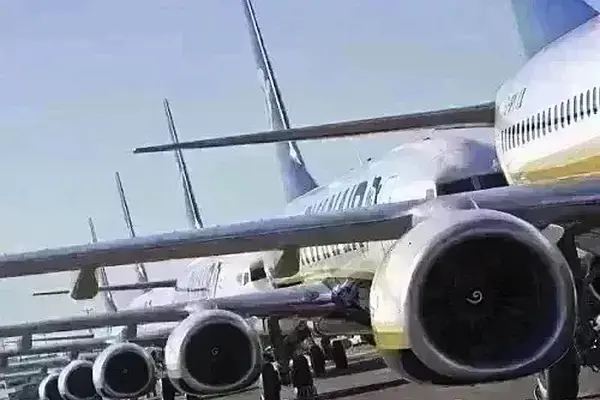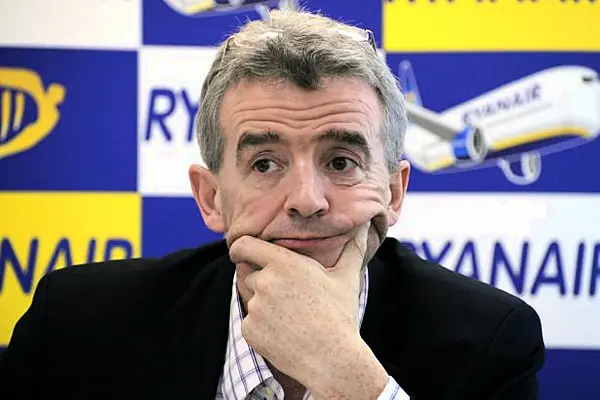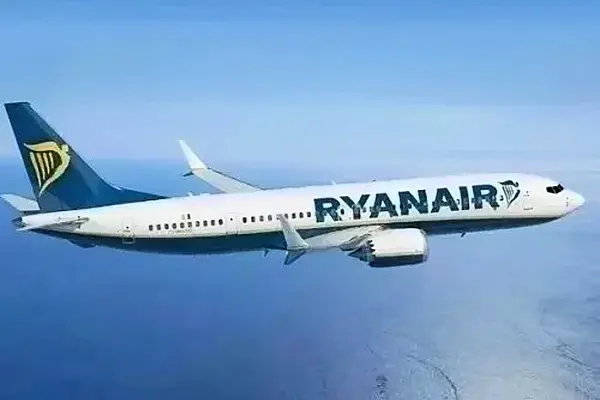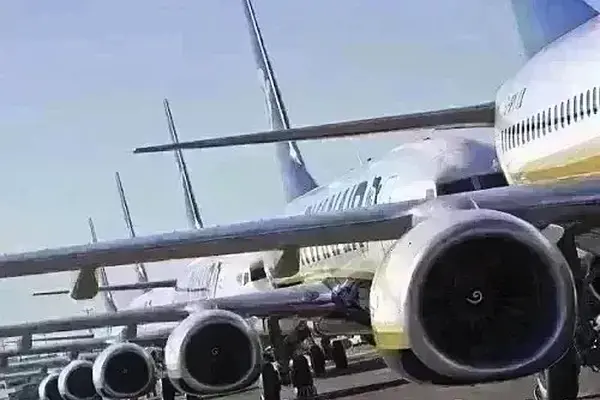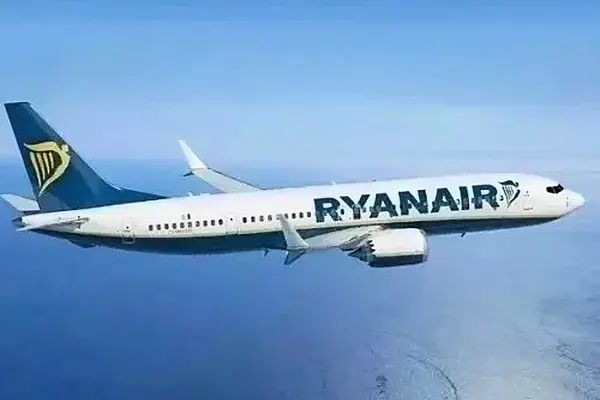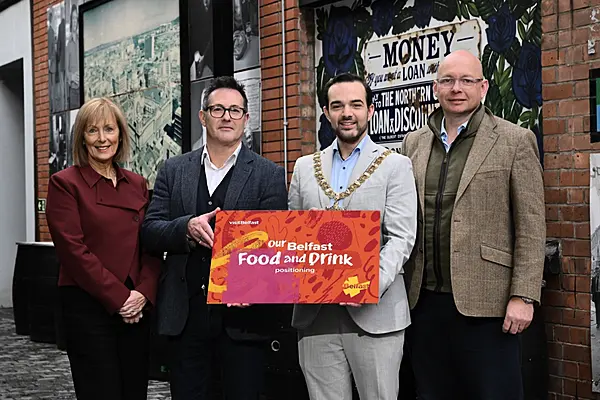The worldwide surge in inflation is a boon for Ryanair's growth, the budget airline group's chief executive officer, Michael O'Leary, told a news conference in Lisbon on Tuesday 25 October.
Countries across Europe have been grappling with soaring prices brought on by factors such as Russia's invasion of Ukraine, global supply shortages, and the COVID-19 pandemic.
"We think recession, price inflation is very good for our growth," O'Leary said, explaining that in crises, passengers do not stop flying completely, but rather become more price-sensitive and opt for cheaper airlines like Ryanair.
"We see that continuing," the CEO said.
Some European airlines have recently said demand for travel was holding up, calming worries that pressure on household budgets could stall aviation's recovery from the pandemic.
On 13 October, O'Leary said the sustained demand appeared to be supported by savings built up during the pandemic.
However, he then sounded a note of caution over how long that could endure, as he expected customers' disposable income to get hit by higher interest rates and cost of living further into the northern hemisphere winter.
Ryanair Boss Hails Exit Of Brexiteers Under Sunak, Urges Free Trade Deal With EU
The above news was followed by news that Ryanair boss Michael O'Leary hailed the appointment of Rishi Sunak as British prime minister on Tuesday 25 October, saying he was glad the "Brexiteer wing"of government was on its way out and calling for a trade deal with Europe to end post-Brexit turmoil.
He said he was glad "adults have taken charge again".
"They are getting rid of some of the people who were there, from Boris Johnson to Liz Truss, all the Brexiteer wing of the Tory party - they are crazies," the chief executive of one of the world's largest airlines told Reuters on the sidelines of an event in Lisbon.
"...We all accept that we left the EU. Brexit is done but at least have the best free trade deal you can have. Europe is still the UK's largest trading partner."
The Irishman, who last week described the economic situation in Britain as a "car crash" caused by Britain's exit from the European Union, hoped Sunak's first decision would be to rejoin the free trade agreement. Read full story
Sunak formally became Britain's third prime minister in two months on Tuesday 25 October, and pledged to restore trust in British politics, saying he will put the needs of the public first.
He has been tasked with tackling a mounting economic crisis, a warring political party and a deeply divided country in one of the greatest challenges to confront any new leader.
Although the cost of living crisis has hit Britain and the rest of Europe hard, O'Leary said inflation was "very good" for his company because "people don't stop flying" but choose cheaper airlines like Ryanair instead.
"In a recession people become more price sensitive," he said. "They shop in Lidl and Aldi, they spend more on furniture in IKEA and when they want to fly, they fly with Ryanair."
Asked if bookings were holding up in the face of inflation, O'Leary said they were "growing faster than expected".
"We thought bookings would level off after August into September, October and November (but) they are still remarkably strong."
Ryanair flew 15.9 million passengers in September, its third busiest month ever and up 13% on pre-COVID levels.
Ryanair's Handling Services Plan Strikes At 22 Spanish Airports
All of the above news was followed by news that workers at Azul Handling that provides ground handling services to Ryanair at 22 Spanish airports plan to hold several 24-hour strikes between 28 October and 8 January to demand better working conditions, their union USO said on Wednesday 26 October.
Workers are demanding negotiations on a new collective agreement and seeking breakthroughs on issues such as occupational risk prevention and working shifts.
USO called 24-hour strikes on 28 October-1 November; on 8, 11, 30 and 31 December and on 6 and 8 January, all during holidays or long weekends. It has also announced partial stoppages every Friday, Saturday and Sunday in November and on several days in December.
The strike at Azul Handling follows walkouts across Europe as staff demand better pay amid rising costs of living and complain about deteriorating working conditions prompted by a boom in travel that followed the lifting of COVID-19 pandemic restrictions.
News by Reuters, edited by Hospitality Ireland. Click subscribe to sign up for the Hospitality Ireland print edition.
